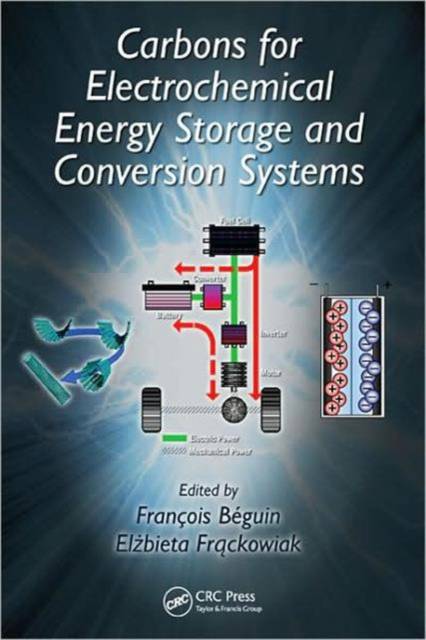
- Retrait gratuit dans votre magasin Club
- 7.000.000 titres dans notre catalogue
- Payer en toute sécurité
- Toujours un magasin près de chez vous
- Retrait gratuit dans votre magasin Club
- 7.000.0000 titres dans notre catalogue
- Payer en toute sécurité
- Toujours un magasin près de chez vous
Carbons for Electrochemical Energy Storage and Conversion Systems
Description
As carbons are widely used in energy storage and conversion systems, there is a rapidly growing need for an updated book that describes their physical, chemical, and electrochemical properties. Edited by those responsible for initiating the most progressive conference on Carbon for Energy Storage and Environment Protection (CESEP), this book undoubtedly fills this need.
Written in collaboration with prominent scientists in carbon science and its energy-related applications, Carbons for Electrochemical Energy Storage and Conversion Systems provides the most complete and up-to-date coverage available on carbon materials for application in electrochemical energy storage and conversion. The text studies different carbon materials and their detailed physicochemical properties and provides an in-depth review of their wide-ranging applications--including lithium-ion batteries, supercapacitors, fuel cells, and primary cells.
Recognizing that most scientists involved with these applications are materials scientists rather than electrochemists, the text begins with a review of electrochemical principles and methods. It then covers the different forms of traditional sp2 carbons, introduces novel techniques for preparing advanced carbons, and describes the main physicochemical properties which control the electrochemical behavior of carbons. The second half of the book focuses on research and provides a wealth of original information on industrial applications.
Complete with an abundance of figures, tables, equations, and case studies, this book is the ideal one-stop reference for researchers, engineers, and students working on developing the carbon-based energy storage and conversion systems of tomorrow.
Spécifications
Parties prenantes
- Editeur:
Contenu
- Nombre de pages :
- 530
- Langue:
- Anglais
- Collection :
Caractéristiques
- EAN:
- 9781420053074
- Date de parution :
- 01-11-09
- Format:
- Livre relié
- Format numérique:
- Genaaid
- Dimensions :
- 183 mm x 257 mm
- Poids :
- 1111 g

Les avis
Nous publions uniquement les avis qui respectent les conditions requises. Consultez nos conditions pour les avis.





